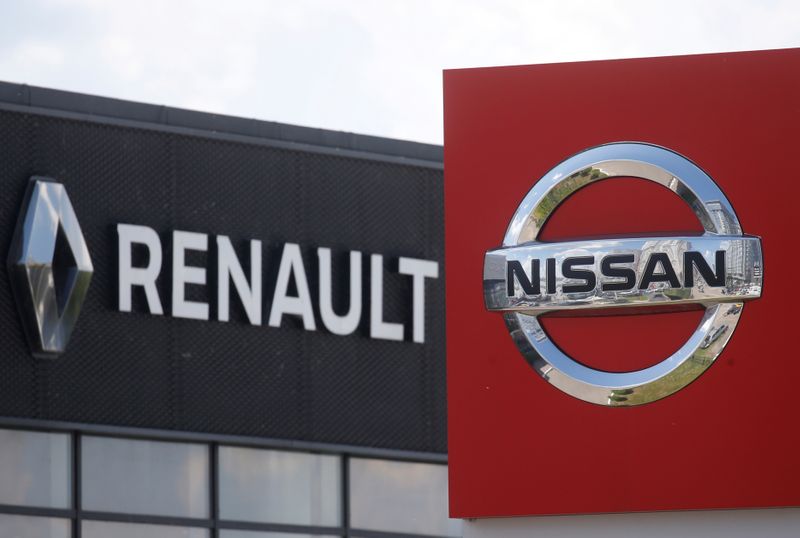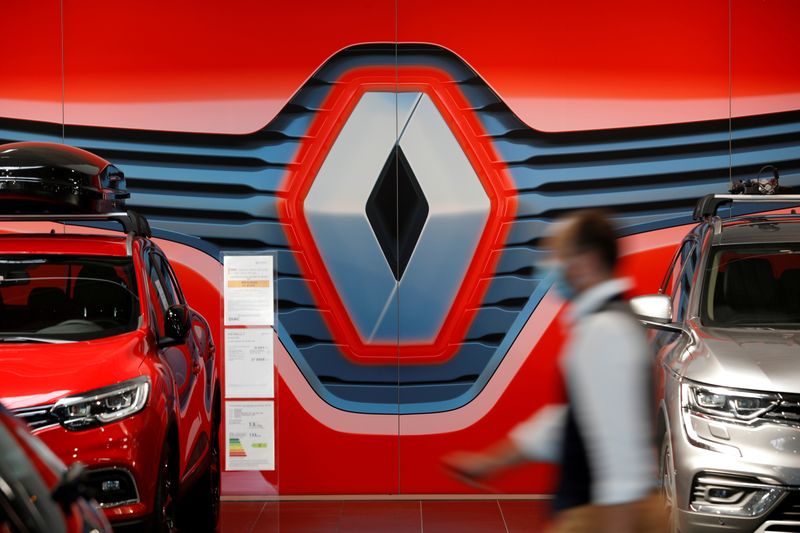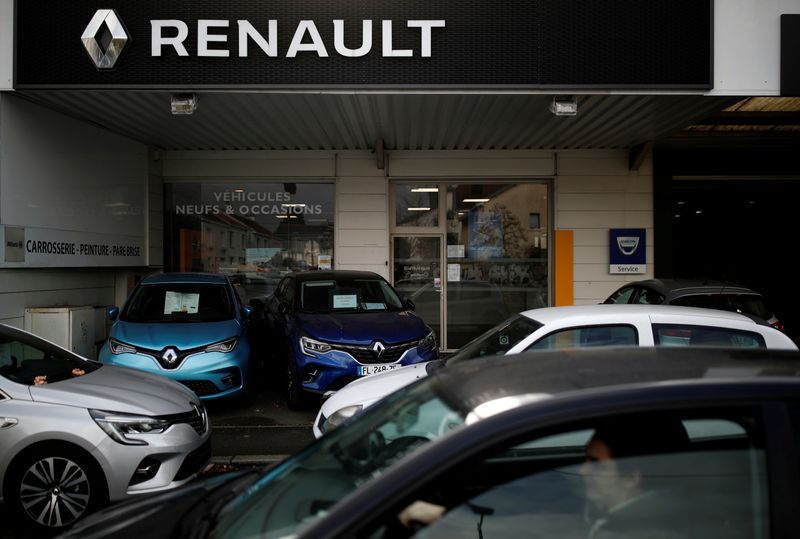PARIS/TOKYO (Reuters) – Record losses reported this week first by Nissan <7201.T> then its alliance partner Renault <RENA.PA> confirmed a harsh reality – automakers that already had weaknesses are having them mercilessly exposed by the COVID-19 epidemic.
All the world’s car companies have been in crisis at one time or another in the past few years, but it so happens that the virus hit just as the Renault-Nissan alliance faced its own reckoning after the messy ouster of its architect Carlos Ghosn.
That leaves Renault and partners Nissan and Mitsubishi <7211.T> vulnerable to what Carlos Tavares, boss of rival PSA <PEUP.PA>, described as a “totally Darwinian period” in global automaking.
COVID-19, combined with other headwinds facing the industry, “will winnow out the ones that are agile and frugal, and the ones that aren’t,” Tavares, whose own company reported a first-half profit this week, told France’s Les Echos newspaper.
Unveiling its financial performance for the first six months of this year on Thursday, Renault said it posted a net loss of 7.29 billion euros ($8.6 billion).
A large share of that was the spillover effect on Renault of losses at Nissan. The Japanese firm said on Tuesday it was gearing up for a $4.5 billion annual operating loss.
For both companies, the losses were their biggest on record.
Luca de Meo, a former executive with Volkswagen <VOWG_p.DE> who started work as Renault CEO on July 6, said while the whole auto sector is feeling the effects of COVID-19, Renault was extra vulnerable because of its pre-existing problems.
“We were already, I would say, feverish. So for sure it is even harder for us,” he told analysts on Thursday. “Today’s results will be a disturbing wake up call.”
The alliance says it has a turnaround plan. It has said it will cut vehicle ranges by a fifth, slash thousands of jobs, and double down on a plan for alliance members to cooperate more closely on car production.
IS GLOBAL GOOD?
Interviewed by a newspaper in Lebanon where he fled from Japan, Ghosn took his own swipe at his old employers on July 20, calling their results “pathetic” and driven as much by a lack of joint leadership as the COVID-19 pandemic.
A major handicap for the alliance is that its global footprint, once a strength, has become a vulnerability.
While European sales have started to recover, demand has been slow to pick up in North America, Nissan’s biggest market, as a surge in coronavirus infections in the past month has kept many people away from car dealerships.
Meanwhile, Mitsubishi has been stung by declining demand in southeast Asia, its biggest market, which was affected by the coronavirus later than other regions.
The alliance has for years countered the effects of an ageing model range by discounting, but that ate into margins, leaving it little cushion in a crisis.
In the quarter that ended in June, Nissan’s operating margin fell to -13.1% from 0.2% a year ago. In comparison, PSA posted a group margin of 2.1% for the first half.
Renault executives said on Thursday the alliance with Nissan and Mitsubishi was more vital than ever to get them through this difficult patch.
Some investors also see the partnership – which can deliver cost savings by allowing alliance members to share research and development costs and platforms – as the route out of the crisis.
“Renault is among those (carmakers) than can remain independent, as long as they continue to reinforce their cooperation,” said Denis Schemoul, analyst with IHS Markit, speaking before Thursday’s Renault results.
But in a nod to how the world has changed since Ghosn forged the alliance and made it into one of the big success stories of global commerce, Renault said for now it would focus on its home turf of Europe and rein in big investments further afield.
Referring to Renault and Nissan, de Meo said: “The first priority is for both companies to focus and fix their miseries internally.”
(Writing by Christian Lowe; Editing by David Holmes)



























